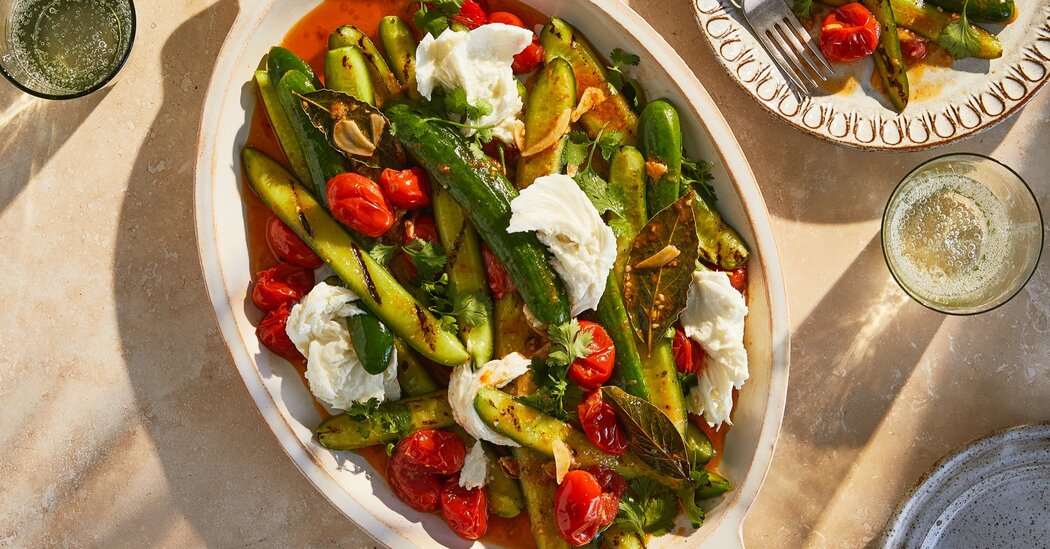
The ability of heat to transform ingredients is not, of course, limited to those that need to be transformed in order to be eaten. Even when something is very much edible as it is — a red bell pepper, for example, or a brioche burger bun — the process of heating can tease out flavor or make the texture more interesting. The sweetness of the bell pepper is drawn out and heightened with heat; the brioche bun gets a smoky taste and a texture with more bite. Think of the wonder that is the grilled-cheese sandwich, for example, where the result, once grilled, becomes so much more than the sum of its ungrilled parts.
And so, too, with the cucumber. Even without the fat, carbohydrates or protein at play in the brioche bun, pork sausage or grilled-cheese sandwich, this fruit that most people call a vegetable still undergoes something very transformative. Food is primarily made up of four basic types of molecules — the fat, carbs and protein just mentioned and also water — so it’s clearly water that is the main factor at play for our green friend. Whatever the particular molecule makeup in a food, as the molecules heat up and gain speed, some of them split off and join with other atoms to create new molecules: This chemical reaction then affects the flavor and texture of food.
For our cucumber, the transformation it undergoes when grilled makes it almost unrecognizable as a cucumber, in a delightful way. The texture becomes more that of a grilled zucchini, for example: The cucumber’s fresh crunch has gone, but in its place is something more substantial, something firmer. The smoky, savory flavor is such that you could be eating a grilled spear of asparagus. For something that is 96 percent water, it really does feel rather remarkable.
So what is going on here? The amount of water in the cucumber means that the process of heating needs to be as quick and hot as possible. Water is an essential element of practically all foods. Cook most of the water out, and the food becomes dry. Leave the water in (or add it), and it becomes tender. Vegetables that lose water become limp, and, well, no one wants a limp cucumber. That is where, and why, the griddle comes in: It’s because of the cucumber’s very high water content, not despite it, that the decision to scorch it on a quick, superhigh heat makes so much sense. It’s already tender, so it would not benefit from a low and slow form of cooking (as would that bell pepper, for instance); nor do we want to steam or poach it (as we would for spears of asparagus, for instance), which would turn it into a mush.




